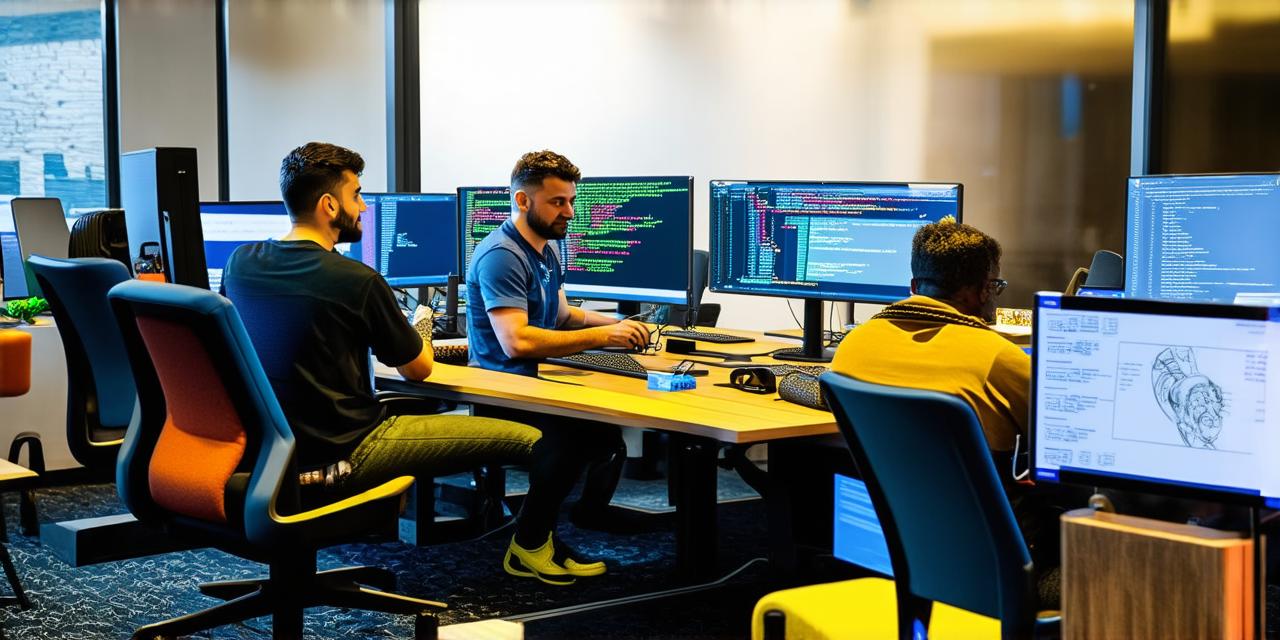In the world of video games, developers play a crucial role in creating immersive and engaging experiences for players. With the increasing popularity of gaming platforms and the rise of mobile gaming, game development has become a highly competitive field. However, one aspect that often goes unnoticed is how long game developers work to create these incredible games.
Work Hours: The Long Hours of Game Development
Game development is known for its long hours, with many developers working late into the night to ensure that their games are polished and perfect. According to a study by the International Game Developers Association (IGDA), the average game developer works 48 hours per week, with some developers working upwards of 60 hours or more.
This long workload is often attributed to the creative nature of game development, where ideas and concepts are constantly evolving and changing. Additionally, the fast-paced nature of the industry means that developers must be able to adapt quickly to new technologies and trends in order to stay competitive.

Workload: The Complex Challenges of Game Development
While long hours are a common aspect of game development, it’s not just about the number of hours worked. The workload of game developers is also heavily influenced by the complexity of the tasks they must perform.
According to a study by the IGDA, game developers spend an average of 15% of their time on administrative tasks such as emails, meetings, and paperwork. This is in addition to the creative and technical aspects of their work, which can be highly demanding and require a high level of skill and expertise.
The Impact on Well-Being and Job Satisfaction
The long hours and complex workload of game developers can have a significant impact on their well-being and job satisfaction. Many developers report feeling stressed and burnt out due to the constant pressure to deliver high-quality games within tight deadlines.
This can lead to decreased productivity, absenteeism, and even turnover in the industry.
The Importance of Self-Care and Work-Life Balance
Given the demands of game development, it’s essential that developers prioritize self-care and maintain a healthy work-life balance. This can involve taking breaks throughout the day to recharge, setting realistic deadlines and expectations for themselves, and seeking support from colleagues or mental health professionals when needed.
In addition to these individual strategies, game development companies must also prioritize the well-being of their employees. This can include offering flexible work schedules, providing opportunities for professional development and growth, and implementing policies that promote work-life balance and reduce stress levels.
Summary: The Challenges and Rewards of Game Development
In conclusion, game developers work long hours and face complex challenges in order to create the immersive and engaging experiences that players love. While the demands of the industry can be overwhelming at times, the rewards of seeing their creations come to life and bring joy to millions of people make it all worthwhile.
By prioritizing self-care and work-life balance, game development companies can help ensure that their employees are able to thrive in this highly competitive and demanding field. And for those who are willing to put in the hard work and dedication, game development can be a rewarding and fulfilling career.
